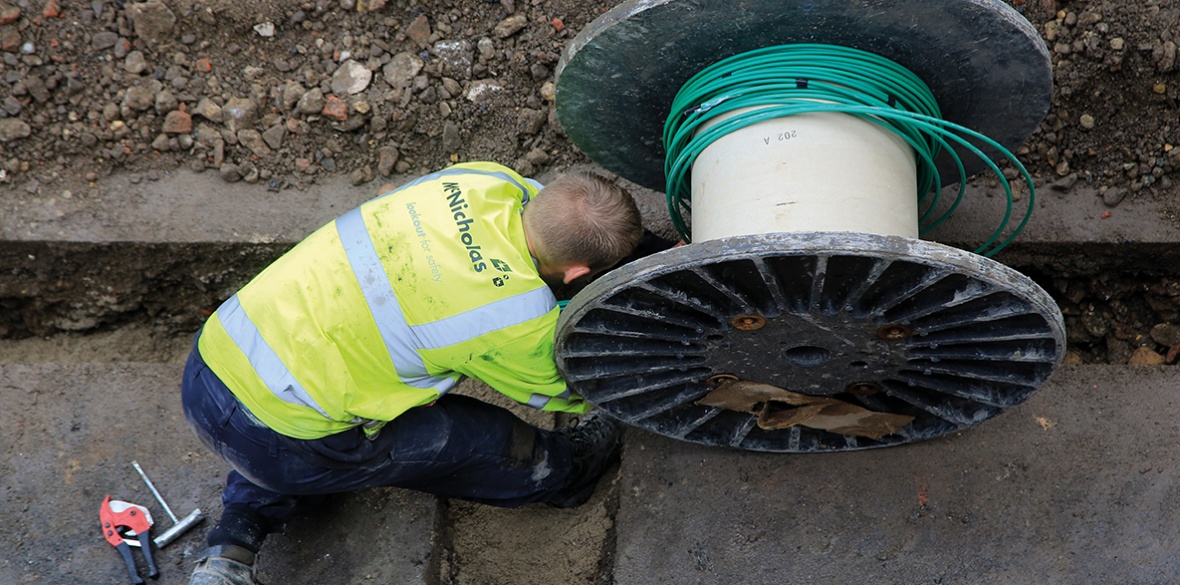This is the last article you can read this month
You can read more article this month
You can read more articles this month
Sorry your limit is up for this month
Reset on:
Please help support the Morning Star by subscribing here
THE Covid-19 pandemic has changed how we look at society, home life and work. Inequality has been seen at a new level for the elderly, the young and workers, with longstanding inadequacies in social care, education and workers’ rights being exposed in the past year.
The CWU, similar to many trade unions, has had to adapt and focus on protecting the lives of its members who have been key workers during the pandemic.
Postal workers have seen a huge increase in their workload with the boom of online shopping. Telecoms workers have provided and maintained vital communications for the whole country to stay connected, meeting unprecedented demand to enable working from home.
Most would imagine that employers who kept busy during the pandemic would be satisfied with providing a much-needed service while still making a profit and contributing to society. However restructuring, attacks on terms and conditions and compulsory redundancies seem to be the only show in town for some.
The CWU will always defend our members’ jobs, terms and conditions despite these opportunistic attacks — employers continuing as if its business as usual will find they are completely out of step with the public mood.
When it comes to industries the CWU covers, this pandemic has clearly demonstrated societies need and rely on a first-class postal service and communications industry.
The CWU firmly believes a publicly owned postal service would deliver better service and a profitable income stream for any government. While our proposals for a publicly owned broadband network, providing fibre broadband to every home and business for free were once denounced as “communism,” they are now more likely to be seen as common sense.
For all the Scottish government’s protestations of £579m investment in broadband, it continues to miss its own targets, lags behind Britain as a whole on full-fibre — and the British figure is pathetic by world standards.
Whilst Scotland has 18.4 per cent full-fibre rollout, countries such as Singapore, Korea and Canada are in the region of 90 per cent. The Full Fibre Charter championed by Paul Wheelhouse fails to make any serious demands of operators to tackle the digital divide and has only three operators on board.
The Scottish government has also discovered buying tens of thousands of devices during the Pandemic does not cut it if they have nothing to plug into — perhaps this is why many still sit in storage?
More worryingly, a recent Citizens Advice Bureau survey found only 40 per cent of those in deprived areas regularly use the internet and 20 per cent never access it at all.
Perhaps this should not surprise us. We live in a society where access to food, shelter and care are heavily dependent on the size of our wallets and it is equally so in the digital world.
If many of our citizens cannot put food on the table, it could be easy to dismiss the importance of broadband in this context; but the state does not need to choose between them. It has the power to resolve both crises, but only with the political will and a determination to challenge the present, failed system.
This is why now the CWU believes that the next Scottish government should be prioritising investment in broadband now.
Recent research for the STUC showed investing in broadband could create over 20,000 good jobs in Scotland over the next two years. In addition, research for the CEBR estimates that rolling out fibre broadband by 2025 could create as many as 40,000 jobs in Scotland, adding billions to the economy in its construction and its long-term effects.
Therefore, the Scottish government should see the telecommunications sector as a priority for investment alongside significant investment and improvements in Scotland’s own network. With a proper industrial strategy, Scotland can be a leading digital nation in the future and this is how we truly “build back better.”
Long-term strategic investment from the next Scottish government in the telecommunications sector should be focused on research and development, fibre-optic and digital equipment manufacturing, cloud and data storage, international high-speed hubs, cyber security and software development.
Scotland should and could be a world leader and trusted provider for digital hardware and software: government investment in this sector could stimulate huge economic growth and taxation income to provide free connectivity and hardware to the most vulnerable in our society and bridge the current digital divide for the next generation.
We would connect rural communities which could become more sustainable, reverse the drain of young people to the cities, reduce our carbon emissions by cutting journeys and deliver employment opportunities.
Connectivity will always be required and will only develop in the future. The creation of highly skilled jobs should be a priority to end the current race to the bottom we are currently experiencing in the world of work and this should be at the heart of any progressive vision for Scotland’s future.
Craig Anderson is regional secretary for the CWU in Scotland.












